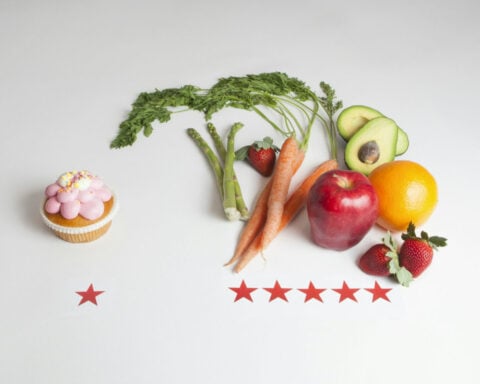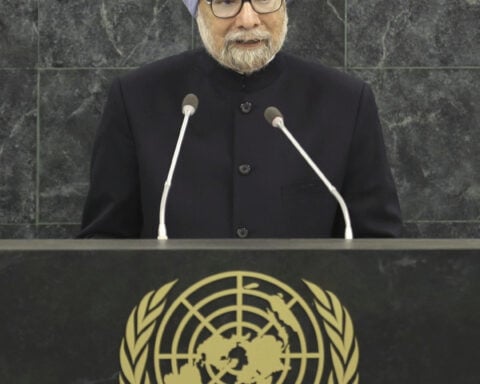You scream, I scream, we all scream for...better heart health? As outlandish as it sounds, that's precisely what some rigorous data analysis from Harvard University has implied. Their research found that diabetics who indulged in a daily ice cream treat had a lower risk of cardiac complications. A real head-scratcher for the nutrition academics, to say the least.
It started with a student named Andres Ardisson Korat at Harvard. He was just doing his doctoral research on dairy and diseases when he noticed something weird. Diabetics who ate a half cup of ice cream daily seemed to have a lower risk of heart issues. Wait, what? Is ice cream helping diabetics? That's like saying drinking beer is good for your liver!
But Korat checked and double-checked, and the numbers didn't lie. As bizarre as it seemed, ice cream was linked to better heart health for those with diabetes. You can imagine how that went over with other researchers—they thought the kid must be speaking something other than ice cream!
Here's the real crux, though—Korat's finding wasn't even the first hint at ice cream's paradoxical powers. A few other studies, dating back years, had also suggested potential benefits from this frozen indulgence. It was enough to make nutrition scientists start questioning everything they thought they knew.
You'd think Korat would be over the moon to discuss his game-changing discovery, right? But nope, he went radio silent on the whole thing once he moved to Tufts University. Maybe he got sick of being the nutrition world's nut job. Can't really blame him - it was looking like a career-ender to be known as Mr. Ice Cream Diabetes Cure.
The dismissive reaction from other researchers isn't that surprising. Dairy has always been a controversial topic in food science. One day, it's hailed for its bone-boosting calcium; the next, it's vilified for its artery-clogging saturated fats. Experts can't seem to decide whether dairy is a dietary devil or an angel.
A University of Minnesota study back in 2002 tried to find some middle ground, saying dairy could actually help overweight folks avoid becoming diabetic. But then it dropped another bombshell - eating ice cream gave the biggest anti-diabetes boost of all! You could practically see the researchers' brains breaking at that point.
Year after year, more studies trickled out seeming to confirm the existence of some weird "ice cream effect." Harvard researchers found men who ate ice cream a couple of times a week had a significantly lower diabetes risk compared to those who didn't indulge. You could practically hear the nutrition community's collective groan of exasperation.
To explain the unthinkable idea of healthy ice cream, some researchers theorized it was all an illusion caused by reverse causation. They thought maybe the unhealthy people were simply avoiding ice cream while the healthy ones kept licking away at their favorite flavors guilt-free. This made little sense as a possible explanation, but it still didn't completely account for all the data.
As the ice cream paradox refused to be swept under the rug, another dairy hero emerged to save the day - yogurt. Finally, a reprieve from the constant mind-bending findings about ice cream! Everyone embraced yogurt's probiotic benefits and saw it as a wholesome, virtuous stand-in for the wicked frozen temptress ice cream. A 2014 Harvard study found a solid yogurt-diabetes link but no total dairy connection whatsoever. Once again, ice cream got the cold shoulder from researchers.
Some outside-the-box thinkers have even suggested the ice cream effect could be rooted in social stigmas around weight and body image. The theory is that overweight people might underreport their ice cream binges out of guilt or shame over indulging in such an unhealthy treat. If that's true, then ice cream's seeming health link might not be from the dessert itself but from exposing society's harsh judgment of larger people's dietary choices.
At the end of this long, frozen foray into nutrition's wackiest mystery, we're still left scratching our heads and wondering - is ice cream actually good for us or not? The data is weird and conflicting, and it makes absolutely no sense based on what we think we know about nutrition and healthy eating.
But perhaps that's exactly the point the ice cream paradox is making. Science isn't a fixed set of formulas and proven facts but an ever-evolving process of questioning and rethinking long-held beliefs. Researchers don't operate in a vacuum - they analyze evidence through the filters of their own ingrained assumptions and biases about the world.
While we may never conclusively solve the mystery of the ice cream paradox, it has taught an important lesson—keeping an open mind. Sometimes, the discoveries that seem the craziest and most contradictory end up shifting our understanding of how things really work in unexpected ways. And who knows, maybe someday, enjoying a scoop of controversy-flavored ice cream now and then won't be seen as such a terrible idea after all.

 Ex-Sen. Bob Menendez, citing 'emotional toll,' seeks sentencing delay in wake of wife's trial
Ex-Sen. Bob Menendez, citing 'emotional toll,' seeks sentencing delay in wake of wife's trial
 Cats can get sick with bird flu. Here's how to protect them
Cats can get sick with bird flu. Here's how to protect them
 An uneasy calm settles over Syrian city of Homs after outbreak of sectarian violence
An uneasy calm settles over Syrian city of Homs after outbreak of sectarian violence
 WHO chief says he was at Yemen airport which Israeli strikes targeted
WHO chief says he was at Yemen airport which Israeli strikes targeted
 Organizers say two sailors have died in Sydney to Hobart yacht race amid wild weather conditions
Organizers say two sailors have died in Sydney to Hobart yacht race amid wild weather conditions
 Column-Why US Congress restored Social Security benefits for public-sector retirees: Mark Miller
Column-Why US Congress restored Social Security benefits for public-sector retirees: Mark Miller
 Peru declares environmental emergency after oil spill
Peru declares environmental emergency after oil spill
 Rose Parade: Ways to get involved and float viewing tips
Rose Parade: Ways to get involved and float viewing tips
 Holiday travelers are facing flight cancellations as severe storms roll into the South
Holiday travelers are facing flight cancellations as severe storms roll into the South








